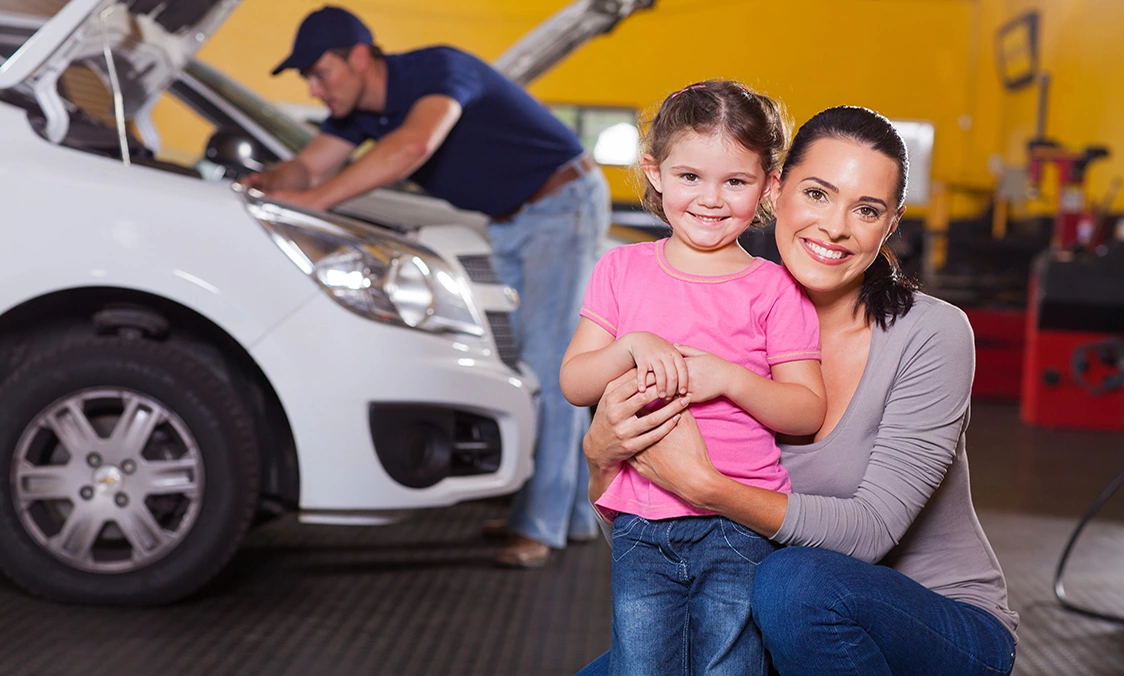Weather Station on Wheels (Vehicle Sensor Maintenance)
February 9, 2025
You probably never thought about it, but your vehicle is like a rolling weather station. It can check the outside temperature, let you know when the roads are slippery and help you deal with rain. And how it does all those things is pretty cool.
First, just like any weather station, a vehicle has sensors that measure the driving and weather conditions you find yourself in. Some of those sensors can control computerized systems in your vehicle to react to the weather. It depends on whether you have a 2-wheel, 4-wheel or all-wheel drive vehicle how those sensors will respond.
Let's start with temperature. Most vehicles now have a thermometer that measures the temperature outside. It's usually in the front, and likely will tell you on the instrument panel what the outside temperature measures. But a temperature sensor will also tell your vehicle's computers to turn on or off certain systems like the heating or air conditioning. If your ambient temperature sensor isn't working right, some symptoms are a malfunctioning automatic A/C or a temperature display that is way different than the app on your phone says it should be.
Your vehicle will also have sensors that measure your speed at each wheel. They work with an onboard computer to measure slippage in any of the wheels so traction control and antilock brakes work correctly in case of slick roads.
Your vehicle can measure something called longitudinal and latitudinal acceleration, and it uses a yaw sensor to do it. That helps it determine if you might be in an oversteering or understeering situation. It's important because it works with your vehicle's brakes to apply stopping power to keep you in control.
A steering wheel sensor tells the vehicle's computers what the driver is doing with the wheel. It also can work with those wheel sensors to measure how slippery the roads are, whether it be due to a wet (rain) or granular (gravel or sand) surface. By sending different torque or braking to each wheel, it helps the driver maintain control.
More and more vehicles now have a rain sensor that can turn on the wipers automatically when they measure precipitation on the windshield.
So, you're driving your own weather station, and making sure all this data is coming in properly depends on how each component is working. Regular service and maintenance on these systems is important to make sure they can do their job. Your rolling weather station can't predict the weather, but it can sure help you deal with it, so help it do its job right.
Star Lube Centerton
550 W Centerton Blvd
Centerton, Arkansas 72719
479-795-1060
http://www.starlubecenterton.com
Need Service?
More articles from Star Lube & Auto Repair

Alleviate the Creaks and Squeaks (Chassis Lubrication)
April 20, 2025
If your vehicle creaks and squeaks when you drive down the road, it may mean that some of the metal parts are rubbing against each other and need to be lubricated. Those could be parts of the suspension, steering system and the drivetrain. Years ago, most vehicles had to have their chassis (wha... More

A Fluid Situation (Check Fluid Levels)
April 13, 2025
There's one fluid in your car you are always careful to keep at a certain level: the fuel. If you don't have fuel, you're not going anywhere. Your vehicle has other fluids which are vitally important to proper and safe operation, too. So, here's a "level" headed approach to those "other" fluids... More

The Daily Grind (Grinding Noise)
April 6, 2025
If your vehicle makes a grinding sound when you turn the steering wheel, it's speaking to you. No, really, it is. So listen to what it's saying and you could avoid a much more costly repair down the road. A grinding sound coming from the front of your vehicle when you are turning can offer some... More









